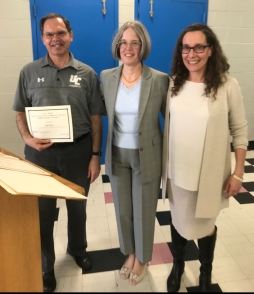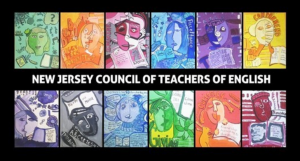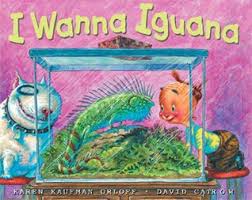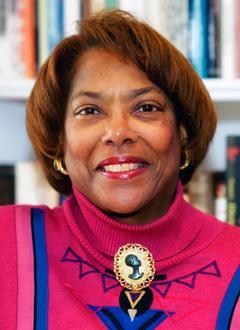by Audrey Fisch and Susan Chenelle (originally posted on our blog, Using Informational Text to Teach Literature)
Periodically, on NCTE’s Connected Community, in our hallways, at conferences, and sometimes in our classrooms, we have one persistent and difficult conversation. How do we balance teaching canonical literature on the one hand and offering our students, on the other hand, what Latrise Johnson describes as “texts that include diverse characters but also . . . are reflective of students’ rich and complex histories”? This debate seems to surface, in particular, around To Kill a Mockingbird. Most recently, Will Menarndt argues in “Forget Atticus” that we should stop teaching TKAM.
Mockingbird has a long history of being lauded; Oprah has called it “our national book” and recent research suggests that many (white) teachers use TKAM to address multicultural issues, particularly race and racism (Macaluso 280). Depending on how that work is done with TKAM, particularly if we are spending the majority of our time highlighting the “obvious and overt racism” (Macaluso 282) in Harper Lee’s novel, we may be in danger of telling what Chimamanda Adichie warns against: the single story. Obvious and overt racism have been and remain only part of the complex story of racism. Students need to deepen their understanding of the institutional and structural racism that pervades Maycomb – in its housing, schools, and employment opportunities. The issues that Tom Robinson encounters with Maycomb’s justice system, like the lynch mob, are just the tip of the iceberg.
TKAM can be taught fruitfully in relation to that broader story of racism, and many teachers, before and after the publication of Go Set a Watchman, were doing that important work: complicating and troubling the dominant narrative of Atticus as the white savior and Tom as the voiceless, crippled, black victim. Michael Macaluso offers a thoughtful example of that work in his discussion of the lynch mob scene at the jailhouse. Reading against TKAM, for Macaluso, offers students the opportunity to see Atticus’s racism, even in this moment of defense of Tom Robinson, as “evidence of how racism works through privilege . . . and how it is laced into institutional and cultural practices and behaviors” (285).
This practice of reading against the text, particularly when the text is a canonical staple and as such has been central to reifying our dominant ideologies, is what Carlin Borsheim-Black, Macaluso, and Robert Petrone call critical literacy pedagogy (CLP): an approach that “teaches students to read and write against texts and understand that language and texts are not neutral and always ideological” (123).
Using CLP to read TKAM, in other words, reveals a text that on the one hand offers an anti-racist message but on the other hand is bound up with and in concert with a fundamentally racist ideology. This may be what Borsheim-Black, Macaluso, and Petrone call a dissonant realization for students, but it’s an important pedagogical opportunity.
We need to continue to do the important work of welcoming different voices into our classroom and to be sure that our literary curricula change to reflect our current student body. And surely it’s time for us to leave behind the idea that TKAM is an ideal vehicle for a complete and comprehensive discussion of the vast and complex issues of multiculturalism, race, and racism today.
Still, we need to recognize the cultural capital of Harper Lee’s novel: it continues to be idolized and adored (Macaluso 286) in our broader culture. Teaching TKAM, using the CLP model to read both with and against this text, allows students to discover for themselves the ideological complexity of this American novel.
We offer our model of text clusters and companion texts (our series with Rowman and Littlefield) as a productive component of CLP. Reading excerpts from Haywood Patterson and Earl Conrad, two of the Scottsboro boys, about their experience with a lynch mob, students can see for themselves what’s left out of the near-lynching scene in TKAM. Loving v. Virginia makes visible the legal and institutional racism that forces Dolphus Raymond’s to feign drunkenness in order to protect his mixed-race family. An interview with white women who grew up with black domestics in the 30s, particularly when paired with excerpts from an interview with Dorothy Bolden, an African-American woman who worked as a domestic in the 1930s South and founded the National Domestic Workers Union, can unpack and unsettle the representation of Calpurnia.
After all, what really matters is not whether our students can read TKAM as racist or anti-racist but whether we are preparing our students to be powerful and resistant readers of the many texts of our world, including those canonical texts that occupy positions of outsized ideological power.
Works Cited
Borsheim-Black, Carlin, Macaluso, Michael, and Robert Petrone. “Critical Literature Pedagogy: Teaching Canonical Literature for Critical Literacy.” Journal of Adolescent & Adult Literacy, 58.2, Oct. 2014, pp. 123-133.
Macaluso, Michael. “Teaching To Kill a Mockingbird Today: Coming to Terms With Race, Racism, and America’s Novel.” Journal of Adolescent & Adult Literacy, 61.3, Nov./Dec. 2017, pp. 279-287.

New Jersey Council of Teachers of English, the New Jersey state affiliate of NCTE, the National Council of Teachers of English





 New Jersey Council of Teachers of English, the New Jersey state affiliate of NCTE, the National Council of Teachers of English
New Jersey Council of Teachers of English, the New Jersey state affiliate of NCTE, the National Council of Teachers of English

 I Wanna Iguana by Karen Orloff. Great for teaching: argument, letter writing, point of view.
I Wanna Iguana by Karen Orloff. Great for teaching: argument, letter writing, point of view. Meet the Dullards by Sara Pennypacker. Great for teaching: point of view, irony, tone.
Meet the Dullards by Sara Pennypacker. Great for teaching: point of view, irony, tone. Where Are My Books? by Debbie Ridpath Ohi. Great for teaching: story mountain, irony, foreshadowing.
Where Are My Books? by Debbie Ridpath Ohi. Great for teaching: story mountain, irony, foreshadowing. Snapsy the Alligator (Did Not Ask to Be in This Book!) by Julie Falatko. Great for teaching: point of view, tone.
Snapsy the Alligator (Did Not Ask to Be in This Book!) by Julie Falatko. Great for teaching: point of view, tone.
 Dylan the Villain by K.G. Campbell. Great for teaching: point of view, suspension of disbelief, irony.
Dylan the Villain by K.G. Campbell. Great for teaching: point of view, suspension of disbelief, irony. Long Shot: Never Too Small to Dream Big by Chris Paul. Great for teaching: process analysis, point of view.
Long Shot: Never Too Small to Dream Big by Chris Paul. Great for teaching: process analysis, point of view. Manners Are Not for Monkeys! by Heather Tekavec. Great for teaching: irony, point of view, suspension of disbelief.
Manners Are Not for Monkeys! by Heather Tekavec. Great for teaching: irony, point of view, suspension of disbelief. How to Clean Your Room in 10 Easy Steps by Jennifer LaRue Huget. Great for teaching: process analysis, irony, point of view.
How to Clean Your Room in 10 Easy Steps by Jennifer LaRue Huget. Great for teaching: process analysis, irony, point of view.












